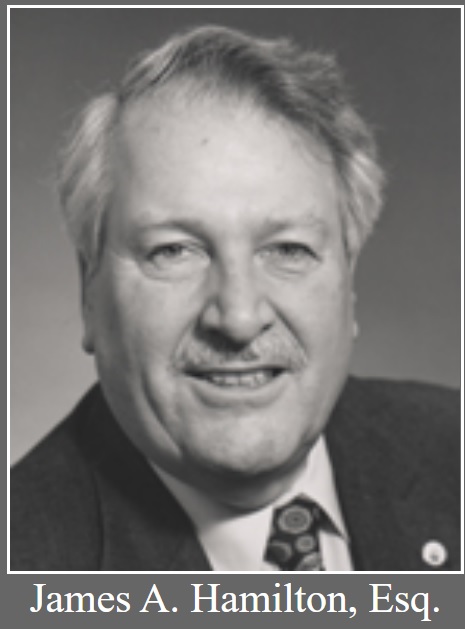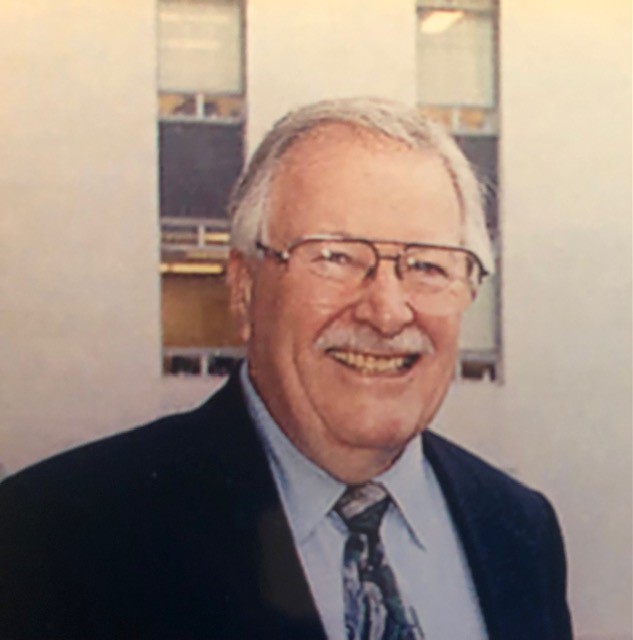Former NCC General Secretary and Historic Civil Rights Advocate James “Jim” Hamilton, Has Died
The National Council of Churches is saddened by the death of James “Jim” Hamilton, Esq. on March 17, 2022. Mr. Hamilton worked for the NCC for over 40 years in the Washington, DC public policy office and also served as General Secretary of the NCC from June of 1989 to November of 1991.
In June of 1989, Mr. Hamilton was working as the director of the Washington office and as the NCC Associate General Secretary for administration when the General Secretary departed and he was asked to fulfill the role. At the autumn meeting of the Governing Board in 1989 he was officially elected as General Secretary but insisted that a full search for the position be completed. During the process, he removed himself as a candidate because of an illness in his family. He then continued to serve the Council as Associate General Secretary for Public Policy until his retirement in 1995.
Mr. Hamilton was revered for his role in the Civil Rights Movement in the 1960’s. His main contributions were organizing on the state and local levels and lobbying in Washington, DC. He brought huge delegations of church people to DC when it was needed during the push for the Civil Rights Act of 1964 and the Voting Rights Act of 1965. His role was behind the scenes, not in the media. Most events featuring prominent Protestant leaders during this era were organized by Mr. Hamilton who was a major force in mobilizing the grassroots movement within the NCC churches.
Mr. Hamilton’s contribution to the Civil Rights Movement was documented in the book, “Church People in the Struggle” which reads, “Hamilton had been in the capitol city for several years, principally as a law student at George Washington University. To finance his studies, Hamilton had served as one of the doorkeepers in the House of Representatives, thus observing national politics at very close range and beginning a long self-education in the intricacies of representing the churches’ interests on Capitol Hill.”
The book details his efforts with the Leadership Conference on Civil Rights, which included being one of five people to participate in an elaborate watchdog system and keep track of the votes of House members. In addition, “Hamilton also developed close links with church people outside Washington, chiefly through existing ecumenical state and local councils of churches, and with the widely dispersed network of denominational officials that supported the NCC’s activities.” The book describes how Hamilton’s office regularly mailed updates to 5,000 people about the legislation and visited midwestern states holding workshops on how to exert pressure to pass the bill.
After the Civil Rights Act was passed into law, the book explains, “Six days after the triumphant signing session at the White House, Hubert Humphrey wrote to Jim Hamilton of the National Council of Churches to express ‘deep appreciation for your splendid efforts during the civil rights debate in the Senate’ and to assert that, without the ‘unremitting support’ of Hamilton and the Leadership Conference, ‘this bill could never have become law.’”
“He had a wonderful gift for enabling other people and helping them to discover their talents and be bold in taking on new tasks,” explained Mary Cooper who served as his secretary and was Director of NCC’s Washington office when he was General Secretary. “He was very dedicated and a committed social justice advocate who was always a kind and generous person. He was a joy to work with.”
Because of another of his priorities, Mr. Hamilton was a founder and the first Chair of Churches for Middle East Peace, which encourages US policies that actively promote a comprehensive resolution to conflicts in the Middle East.
Mr. Hamilton is survived by his daughter Carolyn Schaeffer and his son Jim Hamilton, Jr. and four grandchildren. He was predeceased by his wife, Mary, his daughter Elizabeth Givans, and his son, John Spenser Hamilton. We will announce funeral arrangements when the details are made available.
Update: There will be no public funeral. The family will gather in private this summer.


